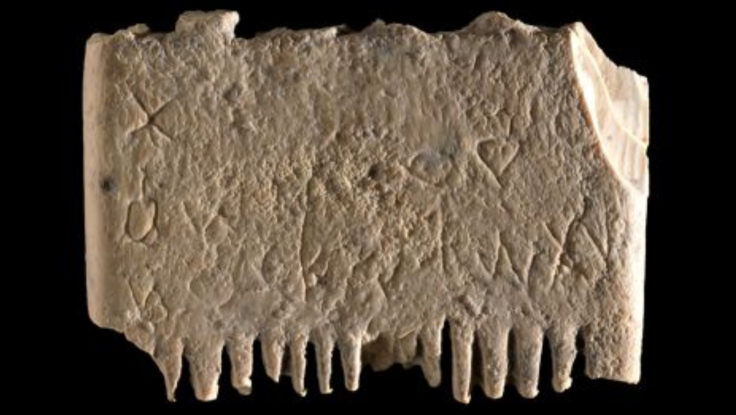Archaeologists Find Ancient Comb With The Oldest Known Sentence
Israeli archaeologists have found an ancient comb dating back 3,700 years ago with an inscription of what is likely the oldest known complete sentence in the Canaanite script, according to a report published Wednesday in the Jerusalem Journal of Archaeology.
The first and only Canaanite sentence was recently deciphered on a Middle Bronze Age ivory lice comb found during a 2016 excavation at Lachish in central Israel. In 2021, an Israel's Hebrew University professor noticed the comb's inscriptions could possibly be a full sentence.

Dr. Daniel Vainstub, the epigrapher, said the inscription dates to the 17th century BCE. They even found microscopic evidence of head lice on the comb.
The inscription translates to: "May this tusk root out the lice of the hair and the beard." Vainstub told the Israel Times, "the comb's inscription is written in the style that characterized the very earliest stage of the alphabet's development." The earliest Canaanite inscriptions in Sinai date to the 19th century BCE, Vainstub has dated the comb to the earliest settlement at Lachish — the 17th century BCE.
The lead researcher on the project, Hebrew University archaeologist Yosef Garfinkel, told the Associated Press that the Canaanite script would open up a new debate about whether only wealthy men could write and read in ancient Canaan.
The inscription gives tremendous insight into what experts understand about the Canaanite alphabet, invented around 1800 B.C. The Canaanite alphabet is the foundation of all successive alphabetic systems, such as Hebrew, Arabic, Greek, Latin, and Cyrillic.
© Copyright IBTimes 2025. All rights reserved.





















